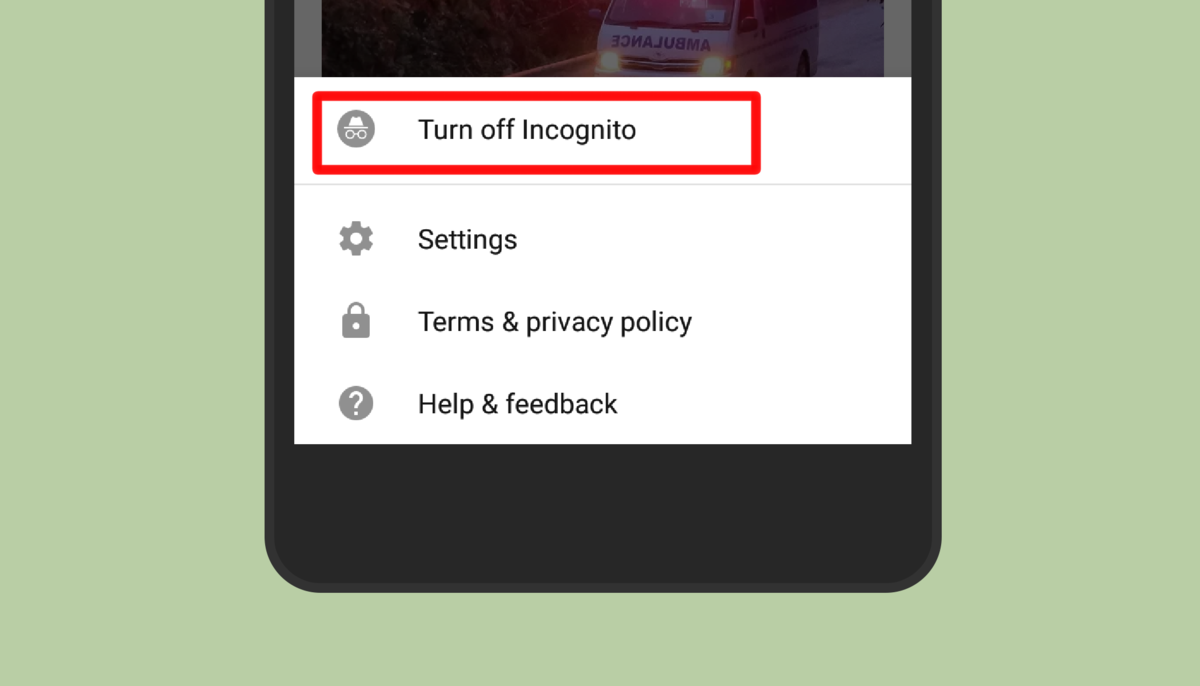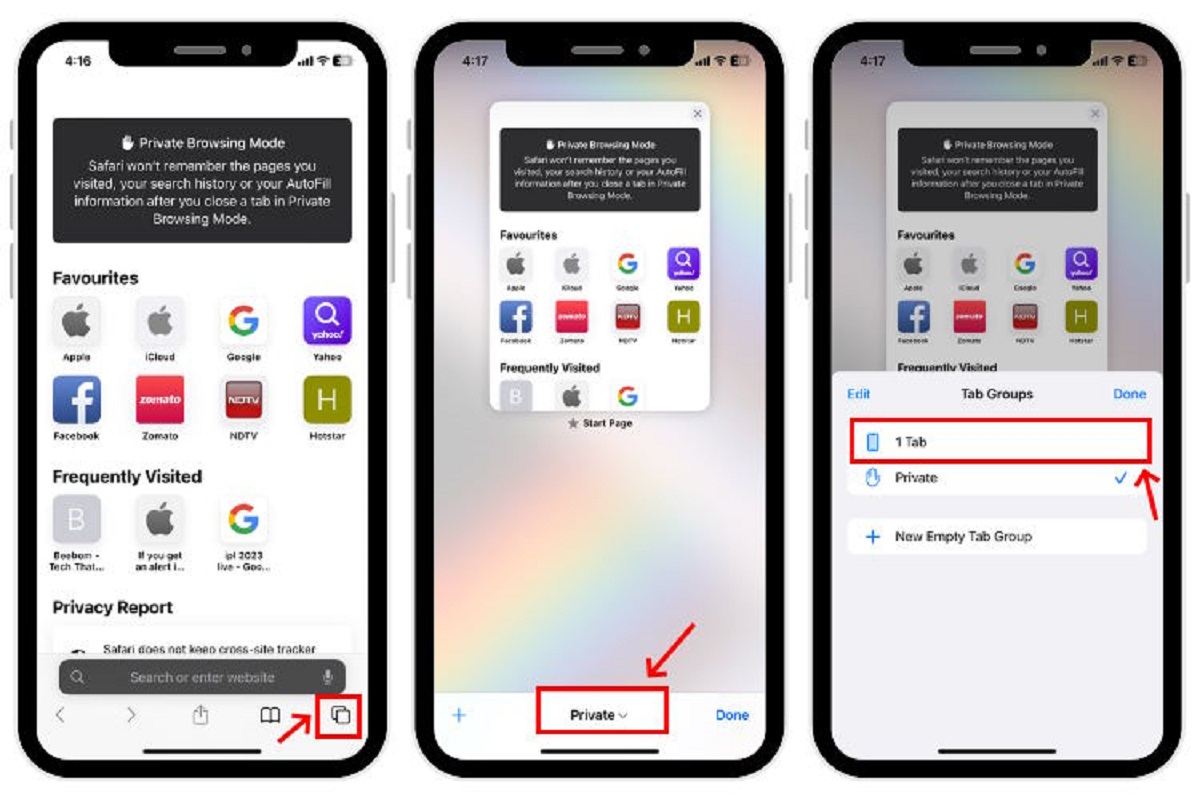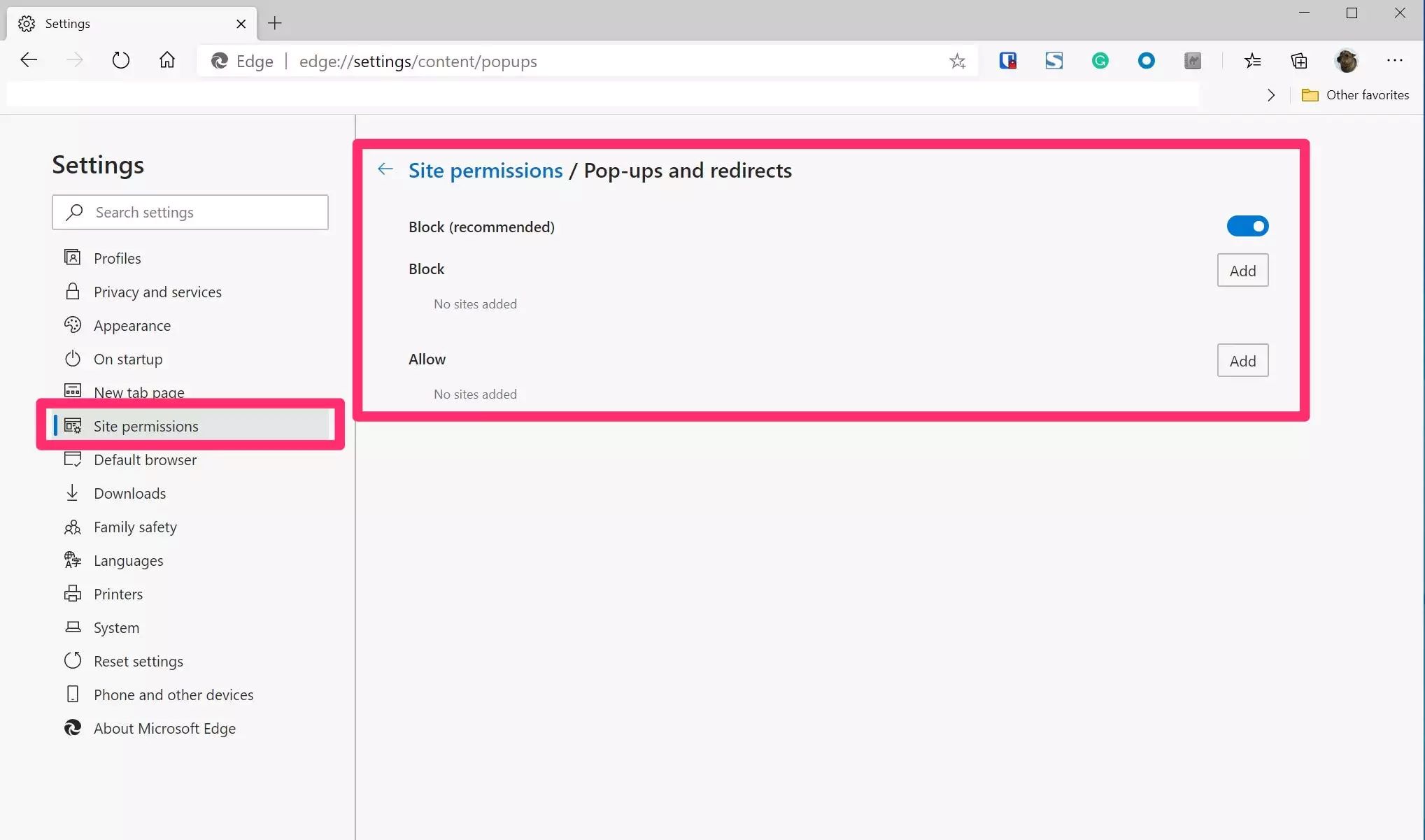Introduction
When it comes to web browsing, the choice of a browser can significantly impact your online experience. Two of the most popular options, Firefox and Chrome, have garnered dedicated user bases and sparked heated debates about which one reigns supreme. Both browsers offer a plethora of features, extensions, and customization options, making the decision a matter of personal preference and specific needs.
In this comprehensive comparison, we will delve into the key aspects of Firefox and Chrome, shedding light on their user interfaces, performance, security measures, customization capabilities, privacy features, developer tools, extensions and add-ons, as well as compatibility with various platforms. By exploring these facets, we aim to provide you with a deeper understanding of the strengths and weaknesses of each browser, empowering you to make an informed choice based on your individual requirements and priorities.
As we embark on this exploration, it's important to note that the "better" browser ultimately depends on your unique preferences, browsing habits, and the specific tasks you aim to accomplish. Whether you prioritize speed, privacy, or seamless integration with developer tools, both Firefox and Chrome have distinct offerings that cater to a wide range of user needs. So, let's embark on this journey to uncover the nuances of these two leading browsers and discover which one aligns best with your digital lifestyle.
User Interface
The user interface of a web browser plays a pivotal role in shaping the overall browsing experience. Both Firefox and Chrome boast sleek and intuitive interfaces, aiming to provide users with a seamless and visually appealing platform for navigating the web.
Firefox
Firefox prides itself on offering a clean and user-friendly interface. The browser's minimalist design ensures that the focus remains on the web content, with unobtrusive elements that facilitate effortless navigation. The toolbar is customizable, allowing users to tailor their browsing experience by adding or removing specific features according to their preferences. Additionally, Firefox's menu layout is thoughtfully organized, making it easy for users to access essential functions and settings without feeling overwhelmed by cluttered menus.
Chrome
Chrome, on the other hand, is renowned for its simplicity and efficiency. The browser's interface is characterized by a clean and uncluttered design, with a prominent omnibox that serves as both the address bar and search engine. This dual functionality streamlines the browsing process, enabling users to seamlessly enter URLs and perform web searches from a single location. Chrome's tab management system is another standout feature, allowing users to organize and navigate multiple tabs with ease, making it a preferred choice for multitaskers and power users.
Comparison
In terms of user interface, both Firefox and Chrome excel in providing intuitive and visually appealing browsing environments. While Firefox emphasizes customization and a streamlined menu layout, Chrome stands out with its efficient omnibox and robust tab management system. Ultimately, the choice between the two browsers in this aspect boils down to individual preferences regarding customization options and tab management efficiency.
In the next section, we will delve into the performance of Firefox and Chrome, exploring factors such as speed, resource management, and overall responsiveness to provide a comprehensive comparison of their browsing capabilities.
Performance
When it comes to web browsing, performance is a critical factor that significantly influences the overall user experience. Both Firefox and Chrome have made substantial strides in optimizing their performance to deliver swift and responsive browsing capabilities. Let's delve into the key aspects of performance to gain a comprehensive understanding of how these browsers measure up.
Speed
Speed is often the first metric that comes to mind when evaluating browser performance. Firefox has made significant enhancements in this area, with its Quantum engine designed to deliver a faster and more efficient browsing experience. The browser's improved page rendering speed and faster startup times have garnered praise from users seeking a snappy and responsive browsing experience.
Chrome, known for its speed and agility, has set a high bar in the realm of web browsing performance. Its V8 JavaScript engine and efficient memory management contribute to swift page loading times and seamless navigation across various websites. Chrome's reputation for speed has solidified its position as a go-to choice for users who prioritize rapid access to web content.
Resource Management
Efficient resource management is crucial for ensuring that a browser operates smoothly without consuming excessive system resources. Firefox has made strides in optimizing resource utilization, aiming to provide a balance between performance and minimal impact on system resources. The browser's improved memory management and reduced CPU usage contribute to a more stable and responsive browsing experience, particularly on systems with limited hardware resources.
Chrome, renowned for its efficient resource allocation, leverages sandboxing and process isolation to enhance stability and security while minimizing the impact on system resources. The browser's ability to handle multiple tabs and extensions without significant performance degradation has solidified its reputation as a resource-efficient browsing platform.
Responsiveness
The responsiveness of a browser encompasses factors such as smooth scrolling, quick tab switching, and prompt execution of user commands. Firefox has made notable strides in enhancing responsiveness, with optimizations aimed at delivering seamless interactions with web content. The browser's focus on reducing input latency and improving overall responsiveness has resulted in a more fluid and engaging browsing experience for its users.
Chrome's responsiveness is a hallmark of its design, with swift tab switching, smooth scrolling, and rapid execution of user actions contributing to a seamless and intuitive browsing experience. The browser's commitment to delivering a responsive interface has resonated with users who value fluid interactions and swift navigation across various web pages.
In the realm of performance, both Firefox and Chrome have demonstrated a commitment to delivering swift, efficient, and responsive browsing experiences. While Firefox has made significant strides in enhancing speed, resource management, and responsiveness, Chrome's reputation for speed and agility remains a defining feature of its performance capabilities. Ultimately, the choice between the two browsers in this aspect hinges on individual preferences regarding speed, resource efficiency, and overall responsiveness.
In the next section, we will explore the crucial aspect of security, shedding light on the measures implemented by Firefox and Chrome to safeguard users' browsing activities and personal data.
Security
Security is a paramount concern in the digital age, especially when it comes to web browsing. Both Firefox and Chrome have implemented robust measures to ensure the safety and privacy of their users' online activities. Let's delve into the key security features and approaches adopted by these browsers to provide a comprehensive comparison.
Firefox
Firefox has long been committed to prioritizing the security and privacy of its users. The browser's emphasis on open-source development and community-driven security initiatives has resulted in a robust set of features aimed at safeguarding users from various online threats.
One of Firefox's standout security features is its Enhanced Tracking Protection, which proactively blocks third-party tracking cookies and cryptominers, thereby mitigating the risk of invasive tracking and potential security vulnerabilities. Additionally, Firefox's strict anti-phishing and malware protection mechanisms provide users with a layer of defense against deceptive websites and malicious content.
Furthermore, Firefox's commitment to user privacy is evident in its implementation of DNS over HTTPS (DoH), which encrypts DNS queries to prevent eavesdropping and manipulation by malicious entities. This proactive approach to securing DNS communications enhances the overall privacy and security of users' browsing activities.
Chrome
Chrome, backed by Google's extensive security infrastructure, has implemented a comprehensive set of security features to protect users from evolving online threats. The browser's robust sandboxing technology isolates individual tabs and processes, mitigating the impact of potential vulnerabilities and enhancing overall system security.
Google's Safe Browsing feature, integrated into Chrome, provides real-time protection against phishing sites and malicious downloads, empowering users to browse the web with confidence. Additionally, Chrome's automatic updates ensure that users receive the latest security patches and enhancements, bolstering the browser's resilience against emerging security risks.
Moreover, Chrome's Site Isolation feature, which separates web pages from different sites into distinct processes, enhances security by mitigating the risk of cross-site data breaches and malicious code execution.
Comparison
In the realm of security, both Firefox and Chrome have demonstrated a strong commitment to safeguarding users from online threats and privacy intrusions. While Firefox's emphasis on enhanced tracking protection and proactive privacy measures resonates with users seeking comprehensive privacy safeguards, Chrome's robust sandboxing technology and seamless integration with Google's security infrastructure provide a formidable defense against a wide range of security risks.
Ultimately, the choice between the two browsers in this aspect hinges on individual preferences regarding privacy protection, proactive security measures, and seamless integration with established security frameworks.
In the next section, we will delve into the customization capabilities of Firefox and Chrome, exploring the extent to which users can tailor their browsing experiences to align with their unique preferences and requirements.
Customization
Customization plays a pivotal role in shaping the browsing experience, allowing users to tailor their web browsers to align with their unique preferences and requirements. Both Firefox and Chrome offer a range of customization options, empowering users to personalize their browsing environments to suit their individual needs.
Firefox
Firefox has long been celebrated for its robust customization capabilities, providing users with a plethora of options to personalize their browsing experience. The browser's emphasis on user empowerment is evident in its support for themes, allowing users to transform the visual aesthetics of the browser interface to reflect their preferred style and mood. From vibrant and artistic themes to minimalist and sleek designs, Firefox offers a diverse array of options to cater to varying aesthetic sensibilities.
Moreover, Firefox's support for extensions and add-ons further amplifies its customization potential. The browser's extensive library of extensions encompasses a wide range of functionalities, including ad blockers, productivity tools, security enhancements, and interface modifications. This rich ecosystem of extensions enables users to augment Firefox with features that align with their specific needs, effectively tailoring the browser to accommodate diverse browsing habits and workflows.
Additionally, Firefox's flexible tab management options empower users to organize and customize their tab layouts, facilitating efficient multitasking and seamless navigation across multiple open tabs. The ability to pin, group, and rearrange tabs according to individual preferences enhances the overall browsing experience, allowing users to create a personalized tab management system that aligns with their workflow and browsing habits.
Chrome
Chrome, renowned for its streamlined and efficient interface, also offers a range of customization options to cater to user preferences. The browser's support for themes enables users to personalize the visual appearance of the browser, with a diverse selection of themes available to cater to varying design preferences. From elegant and minimalist themes to vibrant and expressive designs, Chrome provides users with the flexibility to transform the look and feel of their browsing environment.
Furthermore, Chrome's extensive collection of extensions empowers users to customize the browser with additional functionalities and features. The Chrome Web Store hosts a vast array of extensions spanning categories such as productivity, ad blocking, security, and entertainment, allowing users to enhance their browsing experience with tailored tools and utilities.
In addition to themes and extensions, Chrome offers users the ability to customize their homepage and new tab page, enabling them to personalize their browsing environment with custom backgrounds, shortcuts, and widgets. This level of customization empowers users to create a personalized launchpad for their browsing activities, streamlining access to frequently visited websites and essential tools.
Comparison
In the realm of customization, both Firefox and Chrome offer robust options for users to personalize their browsing experiences. While Firefox excels in providing extensive support for themes, a rich ecosystem of extensions, and flexible tab management, Chrome's streamlined interface, diverse collection of themes, and extensive library of extensions cater to users seeking a balance between simplicity and customization.
Ultimately, the choice between the two browsers in this aspect hinges on individual preferences regarding visual aesthetics, extension ecosystem, and tab management flexibility. Whether users prioritize a highly customizable interface or a streamlined browsing experience with tailored enhancements, both Firefox and Chrome offer compelling options to cater to diverse customization needs.
Privacy
Privacy is a fundamental concern for individuals navigating the digital landscape, and web browsers play a pivotal role in safeguarding users' sensitive information and online activities. Both Firefox and Chrome have implemented robust measures to address privacy considerations, aiming to provide users with a secure and confidential browsing experience.
Firefox has garnered acclaim for its steadfast commitment to user privacy, exemplified by its Enhanced Tracking Protection feature. This proactive mechanism effectively blocks third-party tracking cookies and cryptominers, mitigating the risk of invasive tracking and potential security vulnerabilities. By curbing the reach of tracking entities, Firefox empowers users to navigate the web without constant surveillance, fostering a sense of privacy and control over their online interactions.
Furthermore, Firefox's implementation of DNS over HTTPS (DoH) represents a significant stride in fortifying user privacy. By encrypting DNS queries, Firefox mitigates the risk of eavesdropping and manipulation by malicious entities, enhancing the overall privacy and security of users' browsing activities. This proactive approach to securing DNS communications underscores Firefox's dedication to preserving user privacy in the face of evolving online threats.
Chrome, backed by Google's extensive security infrastructure, has also prioritized user privacy through robust measures. The browser's Safe Browsing feature stands as a formidable defense against phishing sites and malicious downloads, providing real-time protection to users as they navigate the web. Additionally, Chrome's automatic updates ensure that users receive the latest security patches and enhancements, bolstering the browser's resilience against emerging security risks and privacy intrusions.
Moreover, Chrome's Site Isolation feature, which separates web pages from different sites into distinct processes, contributes to privacy protection by mitigating the risk of cross-site data breaches and unauthorized access to sensitive information. This proactive approach to isolating web content aligns with Chrome's commitment to safeguarding user privacy and confidentiality in the digital realm.
In the realm of privacy, both Firefox and Chrome have demonstrated a strong commitment to protecting users from online threats and preserving their confidentiality. While Firefox's emphasis on enhanced tracking protection and proactive privacy measures resonates with users seeking comprehensive privacy safeguards, Chrome's robust security features and seamless integration with Google's security infrastructure provide a formidable defense against a wide range of privacy risks.
Ultimately, the choice between the two browsers in this aspect hinges on individual preferences regarding privacy protection, proactive security measures, and seamless integration with established security frameworks. Whether users prioritize enhanced tracking protection, proactive privacy measures, or seamless integration with established security frameworks, both Firefox and Chrome offer compelling options to cater to diverse privacy needs.
Developer Tools
In the realm of web development, robust and intuitive developer tools are indispensable for creating, debugging, and optimizing websites and web applications. Both Firefox and Chrome offer comprehensive sets of developer tools, empowering web developers to streamline their workflows, troubleshoot issues, and optimize the performance of their creations. Let's delve into the key aspects of the developer tools provided by Firefox and Chrome to gain a comprehensive understanding of their capabilities.
Firefox
Firefox Developer Tools encompass a diverse array of functionalities designed to cater to the needs of web developers and designers. The browser's built-in tools include the Inspector, which enables developers to inspect and modify the structure and layout of web pages in real time. This feature facilitates precise adjustments to HTML and CSS elements, empowering developers to fine-tune the visual presentation of their web content.
Moreover, Firefox's Web Console provides a versatile platform for logging JavaScript, CSS, network, and security messages, enabling developers to diagnose errors, track network activity, and monitor security-related events. The Web Console's interactive interface and comprehensive logging capabilities streamline the debugging process, empowering developers to identify and address issues efficiently.
Additionally, Firefox's Network Monitor offers detailed insights into network requests, responses, and timings, providing developers with a comprehensive overview of their web applications' network performance. This feature facilitates the optimization of network-related aspects, such as resource loading times and data transfer efficiency, contributing to the overall responsiveness and user experience of web applications.
Chrome
Chrome's Developer Tools stand as a cornerstone of the browser's appeal to web developers, offering a rich set of functionalities to facilitate efficient web development and debugging. The browser's Elements panel provides a comprehensive view of the Document Object Model (DOM) and CSS styles, enabling developers to inspect, modify, and visualize the structure and layout of web pages with precision and ease.
Furthermore, Chrome's Console empowers developers to log and interact with JavaScript, diagnose network issues, and monitor security-related events, fostering a streamlined approach to debugging and troubleshooting web applications. The Console's interactive interface and robust logging capabilities provide developers with a powerful platform to identify and address errors and performance bottlenecks effectively.
Moreover, Chrome's Performance panel offers in-depth insights into the runtime performance of web applications, enabling developers to analyze CPU usage, JavaScript execution times, and rendering performance. This feature equips developers with the tools to identify and address performance bottlenecks, optimize code execution, and enhance the overall responsiveness of their web applications.
Comparison
In the realm of developer tools, both Firefox and Chrome offer robust and versatile platforms to cater to the diverse needs of web developers and designers. While Firefox excels in providing comprehensive network monitoring capabilities and a user-friendly interface, Chrome stands out with its powerful performance analysis tools and seamless integration with other Google developer services.
Ultimately, the choice between the two browsers in this aspect hinges on individual preferences regarding network monitoring, performance analysis, and the overall user experience of developer tools. Whether developers prioritize a streamlined debugging interface, comprehensive network insights, or powerful performance analysis capabilities, both Firefox and Chrome offer compelling options to enhance the web development workflow.
In the next section, we will explore the extensive ecosystem of extensions and add-ons available for Firefox and Chrome, shedding light on the diverse functionalities and enhancements that users can leverage to tailor their browsing experiences to align with their unique needs and preferences.
Extensions and Add-ons
Extensions and add-ons serve as the lifeblood of modern web browsers, empowering users to augment their browsing experiences with a diverse array of functionalities, ranging from productivity tools and ad blockers to entertainment enhancements and security utilities. Both Firefox and Chrome boast extensive ecosystems of extensions and add-ons, catering to a wide spectrum of user needs and preferences.
Firefox
Firefox has cultivated a vibrant and diverse collection of extensions and add-ons, reflecting the browser's commitment to user empowerment and customization. The Firefox Add-ons marketplace hosts a rich assortment of extensions, enabling users to tailor their browsing experiences with precision and flexibility. From ad blockers and password managers to language translators and social media integrations, Firefox's extension ecosystem encompasses a broad range of functionalities to cater to diverse user requirements.
One of Firefox's standout features is its support for themes and complete personas, allowing users to transform the visual aesthetics of the browser interface to align with their preferred styles and moods. This emphasis on visual customization empowers users to create personalized and immersive browsing environments that resonate with their individual sensibilities.
Moreover, Firefox's commitment to user privacy and security is evident in its support for privacy-focused extensions, such as tracker blockers and script blockers, which enable users to fortify their online privacy and mitigate the impact of invasive tracking mechanisms. Additionally, Firefox's emphasis on open-source development has fostered a community-driven approach to extension creation, resulting in a diverse and innovative array of add-ons that cater to evolving user needs.
Chrome
Chrome's Web Store hosts an extensive and diverse collection of extensions, offering users a wide array of functionalities to enhance their browsing experiences. From productivity tools and tab management utilities to ad blockers and entertainment enhancements, Chrome's extension ecosystem provides users with a versatile toolkit to tailor their browsing environments according to their unique preferences and workflows.
One of Chrome's notable strengths lies in its seamless integration with other Google services, enabling users to leverage extensions that complement their usage of Gmail, Google Drive, and other Google products. This cohesive integration fosters a unified and streamlined user experience, empowering users to seamlessly transition between various web-based activities with ease and efficiency.
Moreover, Chrome's support for progressive web apps (PWAs) and extension-like functionalities further expands the browser's capabilities, allowing users to access web-based applications and services in a manner that blurs the line between traditional browsing and app usage. This convergence of web and app experiences enriches Chrome's extension ecosystem, providing users with a holistic platform for accessing diverse functionalities within the browser environment.
Comparison
In the realm of extensions and add-ons, both Firefox and Chrome offer robust and diverse ecosystems to cater to the multifaceted needs of users. While Firefox excels in providing a rich assortment of privacy-focused extensions and a strong emphasis on visual customization, Chrome's seamless integration with Google services and support for progressive web apps contribute to a cohesive and versatile extension ecosystem.
Ultimately, the choice between the two browsers in this aspect hinges on individual preferences regarding privacy-focused functionalities, visual customization options, and seamless integration with other web-based services. Whether users prioritize a diverse array of privacy-enhancing extensions or a cohesive integration with other web-based platforms, both Firefox and Chrome offer compelling options to enrich the browsing experience through extensions and add-ons.
Compatibility
Compatibility is a crucial aspect to consider when evaluating web browsers, as it directly impacts the seamless integration of various web-based services, applications, and technologies. Both Firefox and Chrome have made significant strides in ensuring broad compatibility with web standards, emerging technologies, and diverse online platforms.
Firefox, renowned for its commitment to open web standards, has prioritized compatibility with a wide range of web technologies and frameworks. The browser's robust support for HTML5, CSS3, and JavaScript standards enables users to engage with modern web content and applications without encountering compatibility issues. Moreover, Firefox's adherence to evolving web standards and specifications fosters a consistent and reliable browsing experience across diverse websites and web-based services.
Chrome, backed by Google's extensive web ecosystem, has established itself as a versatile and compatible platform for accessing a wide array of web content and applications. The browser's seamless integration with Google services, such as Gmail, Google Drive, and Google Workspace, ensures a cohesive and compatible experience for users who rely on these web-based platforms for productivity and communication.
Furthermore, both Firefox and Chrome have demonstrated robust compatibility with progressive web applications (PWAs), enabling users to access web-based applications with native-like functionalities and experiences. This convergence of web and app experiences enriches the browsing landscape, providing users with versatile and immersive interactions with web-based services and applications.
In the realm of compatibility with web extensions and add-ons, both Firefox and Chrome offer extensive support for diverse functionalities, empowering users to tailor their browsing experiences with a rich assortment of tools and utilities. The compatibility of extensions and add-ons with both browsers contributes to a vibrant and dynamic browsing ecosystem, catering to the diverse needs and preferences of users seeking to augment their browsing environments with tailored functionalities.
Ultimately, the compatibility of Firefox and Chrome with web standards, emerging technologies, and diverse web-based platforms underscores their commitment to providing users with versatile and seamless browsing experiences. Whether users prioritize compatibility with modern web standards, seamless integration with web-based services, or support for diverse web technologies, both Firefox and Chrome offer compelling options to cater to diverse compatibility needs.
Conclusion
In the perennial debate between Firefox and Chrome, the choice of a superior browser ultimately hinges on individual preferences, priorities, and specific use cases. Both browsers offer a rich tapestry of features, extensions, and customization options, catering to a diverse spectrum of user needs and browsing habits. As we conclude our comprehensive comparison, it's essential to reflect on the nuanced strengths and distinctive offerings of Firefox and Chrome.
Firefox, with its steadfast commitment to user privacy, robust customization capabilities, and extensive support for privacy-focused extensions, resonates with users seeking a browsing experience fortified with proactive privacy measures and tailored functionalities. The browser's emphasis on open-source development, community-driven security initiatives, and a vibrant ecosystem of themes and extensions underscores its dedication to user empowerment and customization.
On the other hand, Chrome's streamlined interface, seamless integration with Google services, and robust security features position it as a versatile and compatible platform for users who prioritize a cohesive and unified browsing experience. The browser's emphasis on speed, agility, and a diverse collection of extensions reflects its commitment to delivering a seamless and efficient browsing environment that aligns with the multifaceted needs of modern users.
Ultimately, the choice between Firefox and Chrome is a deeply personal one, shaped by individual preferences regarding privacy protection, customization options, performance capabilities, and compatibility with diverse web-based platforms and technologies. Whether users prioritize enhanced tracking protection, a rich assortment of privacy-focused extensions, or seamless integration with Google services, both Firefox and Chrome offer compelling options to cater to diverse browsing needs.
As the digital landscape continues to evolve, the ongoing competition between Firefox and Chrome serves as a testament to the dynamic nature of web browsing, innovation, and user-centric design. Whether you lean towards Firefox's emphasis on privacy and customization or Chrome's streamlined interface and seamless integration with Google services, the choice of a superior browser ultimately rests in your hands, guided by your unique preferences, priorities, and digital lifestyle.

























